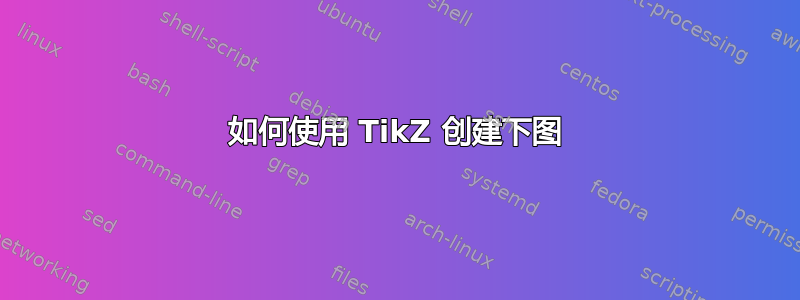
我尝试过以下代码:
\documentclass{standalone}
\usepackage{tikz}
\begin{document}
\begin{tikzpicture}
\draw(0,0) circle (1);
\filldraw[pink] (-1,0) rectangle (9,1);
\filldraw[pink] (9.25,0.3) ellipse (0.9cm and 0.7cm);
\node at (0,0.5) {\footnotesize{$127^{th}$}};
\node at (0,-0.5) {\footnotesize{World}};
\node at (4.9,0.75) {\footnotesize{Shanghai Ranking}};
\node at (4.9,0.25) {\footnotesize{(China)}};
\node at (9.25,0.35) {\footnotesize{$2017$}};
\end{tikzpicture}
\end{document}
我在上述代码的帮助下创建了这个。
答案1
Ignasi 的出色回答加上一些阴影。
\documentclass[tikz, border=2mm]{standalone}
\usetikzlibrary{shapes.geometric, positioning,
intersections,calc,shadows,shapes,fit,fadings}
\usetikzlibrary{backgrounds}
\pgfdeclarelayer{background}
\pgfdeclarelayer{foreground}
\pgfsetlayers{background,main,foreground}
\usetikzlibrary{shadows.blur}
\tikzset{% from https://tex.stackexchange.com/a/287177/121799
my blur shadow layer/.style={
preaction={fill=black,fill opacity=.025,transform canvas={xshift=0,yshift=#1}},
},
my blur shadow/.style={
my blur shadow layer/.list={.3pt,.6pt,...,4.8pt},
},
}
\makeatletter%from https://tex.stackexchange.com/a/245444/121799
\pgfdeclareradialshading{tikz@lib@fade@circle@5}{\pgfpointorigin}{%
color(0pt)=(pgftransparent!0); color(18.75bp)=(pgftransparent!0);%
color(22bp)=(pgftransparent!100); color(40bp)=(pgftransparent!100)%
}
\pgfdeclarefading{circle with fuzzy edge 5 percent}{%
\pgfuseshading{tikz@lib@fade@circle@5}%
}
\pgfdeclareradialshading{tikz@lib@fade@circle@2}{\pgfpointorigin}{%
color(0pt)=(pgftransparent!100); color(18.75bp)=(pgftransparent!100);%
color(22bp)=(pgftransparent!0); color(40bp)=(pgftransparent!0)%
}
\pgfdeclarefading{circle with fuzzy edge 2 percent}{%
\pgfuseshading{tikz@lib@fade@circle@2}%
}
\makeatother
\begin{document}
% \tikzset{every shadow/.style={shadow yshift=.5ex,shadow xshift=0pt,
% shadow scale=1}}
%\tikzset{every shadow/.style={shadow scale=1}}
\begin{tikzpicture}
\node[draw=pink,fill=pink, minimum width=9cm, minimum height=1.5cm,
align=center, text width=3cm, text=white, font=\bfseries\sffamily,
name path=SRp,my blur shadow]
(SR)
{Shanghai Ranking\\(China)};
\node[left=-0.5pt of SR,minimum width=1.5cm, minimum height=1.5cm,
fill=white,my blur shadow]{};
\begin{pgfonlayer}{foreground}
\node[
semicircle,
fill=pink,
minimum width=3cm,
draw=pink!80!black,
text=white,
font=\sffamily\bfseries,
below=0pt of SR.north west
]
(127)
{127\textsuperscript{th}};
\node[fill=white,
semicircle,
shape border rotate=180,
minimum width=3cm,
draw=pink!80!black,
font=\sffamily\bfseries,
below=0pt of 127.south
]
(world)
{World};
\begin{scope}
\clip ($(127)!0.5!(world)$) circle (1.5cm);
\draw[draw=none,circular glow=
{path fading={circle with fuzzy edge 2 percent}}] ($(127)!0.5!(world)$)
circle (1.35cm);
\draw[line width=0.5mm,pink] ($(127)!0.5!(world)+(1.475cm,0)$) arc (0:180:1.475cm);
\draw[line width=0.5mm,white] ($(127)!0.5!(world)+(1.475cm,0)$) arc (0:-180:1.475cm);
\end{scope}
\end{pgfonlayer}
\draw[draw=none,circular glow=
{path fading={circle with fuzzy edge 5 percent}}] ($(127)!0.5!(world)$) circle (1.5cm);
\begin{pgfonlayer}{background}
\node[circle,fill=pink, minimum size=2.25cm, text=white,
font=\sffamily\bfseries, right=-3mm of SR.east, name path =2017p,
,circular glow=
{path fading={circle with fuzzy edge 5 percent}}] (2017)
{2017};
\fill[red, name intersections={of=2017p and SRp}];
\end{pgfonlayer}
\fill[my blur shadow,
fill=white]
($(intersection-2)-(0,1cm)$) rectangle ($(world.45)+(1.04cm,0)$);
%\begin{pgfonlayer}{background}
\node[rectangle split, rectangle split horizontal,
rectangle split parts=2, align=left, inner sep =1pt, %text width=4cm,
font=\scriptsize\bfseries\sffamily,
below right= 0mm and 2mm of 127.arc start]
(tabular)
{\begin{tabular}{ll}
\multicolumn{2}{l}{Agricultural Sciences}\\
World: & 127\textsuperscript{th} out of 500\\
Asia: & 21\textsuperscript{st} out of 106\\
Pakistan: & 1\textsuperscript{st} out of 1
\end{tabular}\nodepart{two}\includegraphics[height=1cm]{ARWU.png}};
%\end{pgfonlayer}
\draw[gray] (intersection-2) |- (world.apex);
\end{tikzpicture}
\end{document}
更新:圆圈略有改进。(png 的来源可以在这里找到这里。
编辑:这是您想要删除的部分吗?
\documentclass[tikz, border=2mm]{standalone}
\usetikzlibrary{shapes.geometric, positioning,
intersections,calc,shadows,shapes,fit,fadings}
\usetikzlibrary{backgrounds}
\pgfdeclarelayer{background}
\pgfdeclarelayer{foreground}
\pgfsetlayers{background,main,foreground}
\usetikzlibrary{shadows.blur}
\tikzset{% from https://tex.stackexchange.com/a/287177/121799
my blur shadow layer/.style={
preaction={fill=black,fill opacity=.025,transform canvas={xshift=0,yshift=#1}},
},
my blur shadow/.style={
my blur shadow layer/.list={.3pt,.6pt,...,4.8pt},
},
}
\makeatletter%from https://tex.stackexchange.com/a/245444/121799
\pgfdeclareradialshading{tikz@lib@fade@circle@5}{\pgfpointorigin}{%
color(0pt)=(pgftransparent!0); color(18.75bp)=(pgftransparent!0);%
color(22bp)=(pgftransparent!100); color(40bp)=(pgftransparent!100)%
}
\pgfdeclarefading{circle with fuzzy edge 5 percent}{%
\pgfuseshading{tikz@lib@fade@circle@5}%
}
\pgfdeclareradialshading{tikz@lib@fade@circle@2}{\pgfpointorigin}{%
color(0pt)=(pgftransparent!100); color(18.75bp)=(pgftransparent!100);%
color(22bp)=(pgftransparent!0); color(40bp)=(pgftransparent!0)%
}
\pgfdeclarefading{circle with fuzzy edge 2 percent}{%
\pgfuseshading{tikz@lib@fade@circle@2}%
}
\makeatother
\begin{document}
% \tikzset{every shadow/.style={shadow yshift=.5ex,shadow xshift=0pt,
% shadow scale=1}}
%\tikzset{every shadow/.style={shadow scale=1}}
\begin{tikzpicture}
\begin{scope}
\node[draw=pink,fill=pink, minimum width=9cm, minimum height=1.5cm,
align=center, text width=3cm, text=white, font=\bfseries\sffamily,
name path=SRp,my blur shadow,anchor=north west]
(SR) at (0,0)
{Shanghai Ranking\\(China)};
\end{scope}
% \node[left=-0.5pt of SR,minimum width=1.5cm, minimum height=1.5cm,
% fill=white,my blur shadow]{};
\begin{pgfonlayer}{foreground}
\node[
semicircle,
fill=pink,
minimum width=3cm,
draw=pink!80!black,
text=white,
font=\sffamily\bfseries,
below=0pt of SR.north west
]
(127)
{127\textsuperscript{th}};
\node[fill=white,
semicircle,
shape border rotate=180,
minimum width=3cm,
draw=pink!80!black,
font=\sffamily\bfseries,
below=0pt of 127.south
]
(world)
{World};
\begin{scope}
% \draw[fill=white] ($(127)!0.5!(world)+(70:1.5)$) rectangle ++(-2,0.2);
\clip ($(127)!0.5!(world)$) circle (1.5cm);
\draw[draw=none,circular glow=
{path fading={circle with fuzzy edge 2 percent}}] ($(127)!0.5!(world)$)
circle (1.35cm);
\draw[line width=0.5mm,pink] ($(127)!0.5!(world)+(1.475cm,0)$) arc (0:180:1.475cm);
\draw[line width=0.5mm,white] ($(127)!0.5!(world)+(1.475cm,0)$) arc (0:-180:1.475cm);
\end{scope}
\end{pgfonlayer}
\draw[draw=none,circular glow=
{path fading={circle with fuzzy edge 5 percent}}] ($(127)!0.5!(world)$) circle (1.5cm);
\begin{pgfonlayer}{background}
\node[circle,fill=pink, minimum size=2.25cm, text=white,
font=\sffamily\bfseries, right=-3mm of SR.east, name path =2017p,
,circular glow=
{path fading={circle with fuzzy edge 5 percent}}] (2017)
{2017};
\fill[red, name intersections={of=2017p and SRp}];
\end{pgfonlayer}
\fill[my blur shadow,
fill=white]
($(intersection-2)-(0,1cm)$) rectangle ($(world.45)+(1.04cm,0)$);
%\begin{pgfonlayer}{background}
\node[rectangle split, rectangle split horizontal,
rectangle split parts=2, align=left, inner sep =1pt, %text width=4cm,
font=\scriptsize\bfseries\sffamily,
below right= 0mm and 2mm of 127.arc start]
(tabular)
{\begin{tabular}{ll}
\multicolumn{2}{l}{Agricultural Sciences}\\
World: & 127\textsuperscript{th} out of 500\\
Asia: & 21\textsuperscript{st} out of 106\\
Pakistan: & 1\textsuperscript{st} out of 1
\end{tabular}\nodepart{two}\includegraphics[height=1cm]{ARWU.png}};
%\end{pgfonlayer}
\draw[gray] (intersection-2) |- (world.apex);
\end{tikzpicture}
\end{document}
答案2
intersections我认为使用一些预定义节点(圆形、半圆形)和一些其他库(如和)positioning来构建方案会更容易 。
我不知道该怎么做的是 3d 阴影方面。
\documentclass[tikz, border=2mm]{standalone}
\usetikzlibrary{shapes.geometric, positioning, intersections}
\usepackage{tikz}
\begin{document}
\begin{tikzpicture}
\node[fill=pink, minimum width=9cm, minimum height=1.5cm,
align=center, text width=3cm, text=white, font=\bfseries\sffamily,
name path=SRp]
(SR)
{Shangay Ranking\\(China)};
\node[
semicircle,
fill=pink,
minimum width=3cm,
draw=pink!80!black,
text=white,
font=\sffamily\bfseries,
below=0pt of SR.north west
]
(127)
{127\textsuperscript{th}};
\node[
semicircle,
shape border rotate=180,
minimum width=3cm,
draw=pink!80!black,
font=\sffamily\bfseries,
below=0pt of 127.south
]
(world)
{World};
\node[circle,fill=pink, minimum size=2.25cm, text=white,
font=\sffamily\bfseries, right=-3mm of SR.east, name path =2017p] (2017)
{2017};
\fill[red, name intersections={of=2017p and SRp}];
% (intersection-1) circle (2pt) node[right] {1}
% (intersection-2) circle (2pt) node[right] {2};
\node[align=left, text width=3cm,
font=\scriptsize\bfseries\sffamily,
below right= 0mm and 2mm of 127.arc start]
(tabular)
{\begin{tabular}{ll}
\multicolumn{2}{l}{Agricultural Sciences}\\
World: & 127\textsuperscript{th} out of 500\\
Asia: & 21\textsuperscript{st} out of 106\\
Pakistan: & 1\textsuperscript{st} out of 1
\end{tabular}};
\node[inner sep=0pt, right=2cm of tabular] (logo) {\includegraphics[height=1.2cm]{example-image}};
\draw[gray] (intersection-2) |- (world.apex);
\end{tikzpicture}
\end{document}







